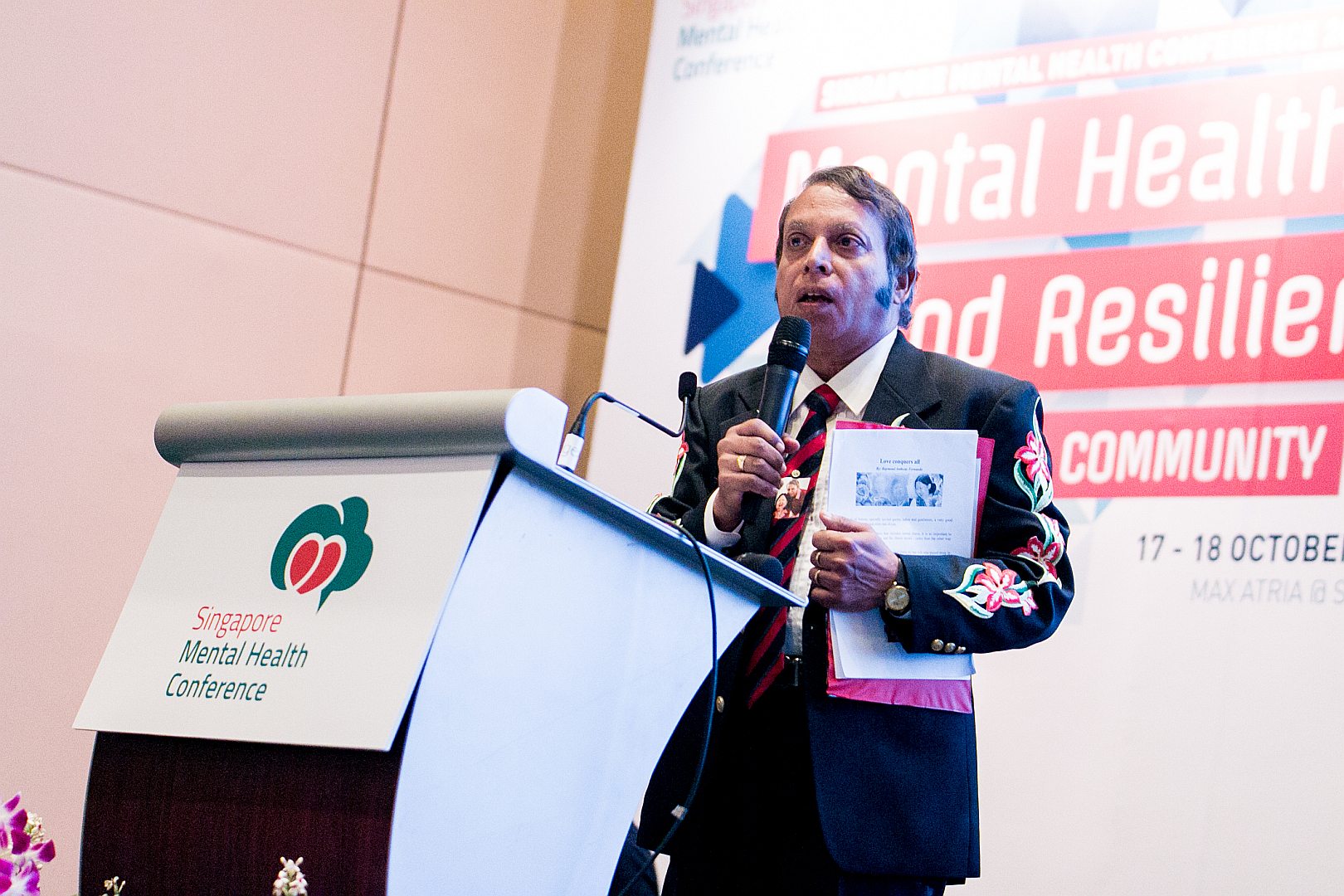More people should make the effort to get to know and not to shy away from individuals who are suffering from mental illnesses. We can all do our part to reduce discrimination and pave the way for acceptance. Many people were pleasantly surprised after speaking to my late wife Doris, and discovering that she had authored 8 books. No one could believe that she had schizophrenia for 44 years.
I am glad to see that there are more public forums being organised now by mental health providers, raising more awareness of mental health issues. However, such talks must continue and I hope that the Community Development Councils and the Residents Committees will provide professionals, recovered patients and their caregivers the opportunity to share their experiences and expertise in this area.
It is encouraging also that more polytechnic students and undergraduates are taking a keen interest on mental health issues of late. In April 2016 I was invited to share my life experience in taking care of my late wife with some 39 undergraduates and staff from the National University of Singapore in a dialogue entitled, “Handle with care: Strength in Adversity.” It was an enriching experience for the audience when they also heard the views of three other speakers, including health care professionals.
Such efforts, if they become widespread, will educate more and more people and stigma will one day become a thing of the past.

In addition, I have gone to more than one hundred places all over Singapore, including government agencies, schools and churches, to speak on my wife’s schizophrenia battle and my own struggle with depression (in 1995). It has been a rewarding experience for me and I will continue to share my life story so that there is a clear understanding of mental disorders where recovery with treatment and support from the family and the community is possible.
Patients and caregivers are the best people to speak out against stigma. By expressing their thoughts and opinions through public forums, letters to the press and on social media, such as Facebook and the internet, they can gradually change perceptions of the mentally ill.
Letters that are published in the mainstream media can be effective in not only raising more awareness of mental health issues, but can also be a useful platform to combat stigma. Unfortunately, not many people who have recovered from mental illness and leading productive lives are prepared to write to the forum pages for fear of being identified and labeled. I encourage you (patients and caregivers) to do so, as your voice can make a difference!